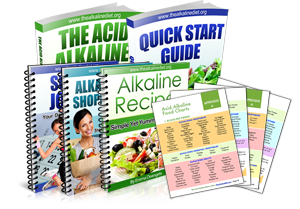Sacred Ancient Remedy in danger of being taken over by Nestle!!! You may have read recently about the wonders of the humble Nigella Sativa or Black Seed Plant, which has been around for thousands of years and known as a 'cure-all' in many countries of the world. Well, now Nestle wants to get their hands on it and patent it themselves to manufacture and control the use of it, which will make it very expensive and impossible to get. Friends, This IS so ridiculous that I had to share, and I hope that you will help me fight it by signing the petition . Nigella sativa -- more commonly known as black seed or fennel flower -- has been used as a cure-all remedy for over a thousand years. It treats everything from vomiting to fevers to skin diseases, and has always been widely available in impoverished communities across the Middle East and Asia. But now Nestlé is claiming to own it, and trying take control over the natural cure of the cumin seed in order to turn it i...
 Everything we eat influences our body's pH level. By consuming too many acid-forming or acidic foods, like a typical continental breakfast, white bread, hot-dogs, muffins with coffee or coke, our body is continuously fighting to neutralize the excessive acid and to retain a pH balance [which is a pH level of 7.356 on the pH scale]. Symptoms of a pH imbalance can be weight problems such as overweight and underweight, as well as other health conditions such as allergies, arthritis, acne and heart attacks.
Everything we eat influences our body's pH level. By consuming too many acid-forming or acidic foods, like a typical continental breakfast, white bread, hot-dogs, muffins with coffee or coke, our body is continuously fighting to neutralize the excessive acid and to retain a pH balance [which is a pH level of 7.356 on the pH scale]. Symptoms of a pH imbalance can be weight problems such as overweight and underweight, as well as other health conditions such as allergies, arthritis, acne and heart attacks.

Comments